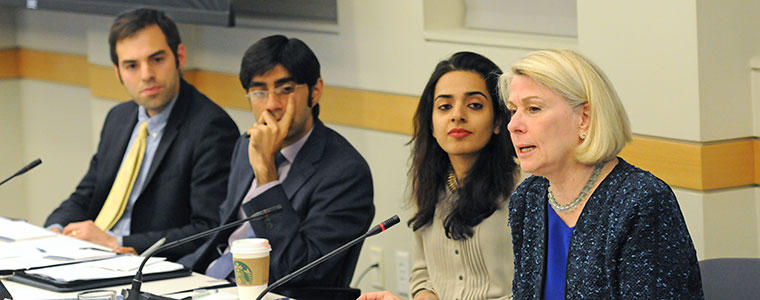Pakistan’s Education Crisis in Context
Read the Event CoverageAt the same time, literacy rates and primary school enrollment are falling. On June 9, the U.S. Institute of Peace hosted a discussion of these trends and others that contribute to extremist narratives, and some potential approaches to address these critical factors.

The USIP study by University of Maryland Assistant Professor Madiha Afzal found that Pakistan’s education system, rather than preparing students to participate in a pluralistic and democratic society, often propagates intolerant attitudes and radicalism. The concern is not limited to private seminaries known as madrassas, which have attracted the greatest share of concern from international policymakers, but also extends to the public school system, where most Pakistanis are educated.
Panelists discussed the study’s findings on school curricula and their role in shaping youth attitudes, as well as the impact of federal decentralization of education responsibilities to the provinces, and the challenges of addressing the educational needs of Pakistan’s burgeoning youth population.
Speakers:
- Dr. Madiha Afzal, Discussant
University of Maryland School of Public Policy - Dr. Rebecca Fox, Discussant
George Mason University College of Education and Human Development - Michael Kugelman, Discussant
Senior Program Associate, Woodrow Wilson Center for International Studies - Dr. Moeed Yusuf, Moderator
Director for South Asia Programs, U.S. Institute of Peace



